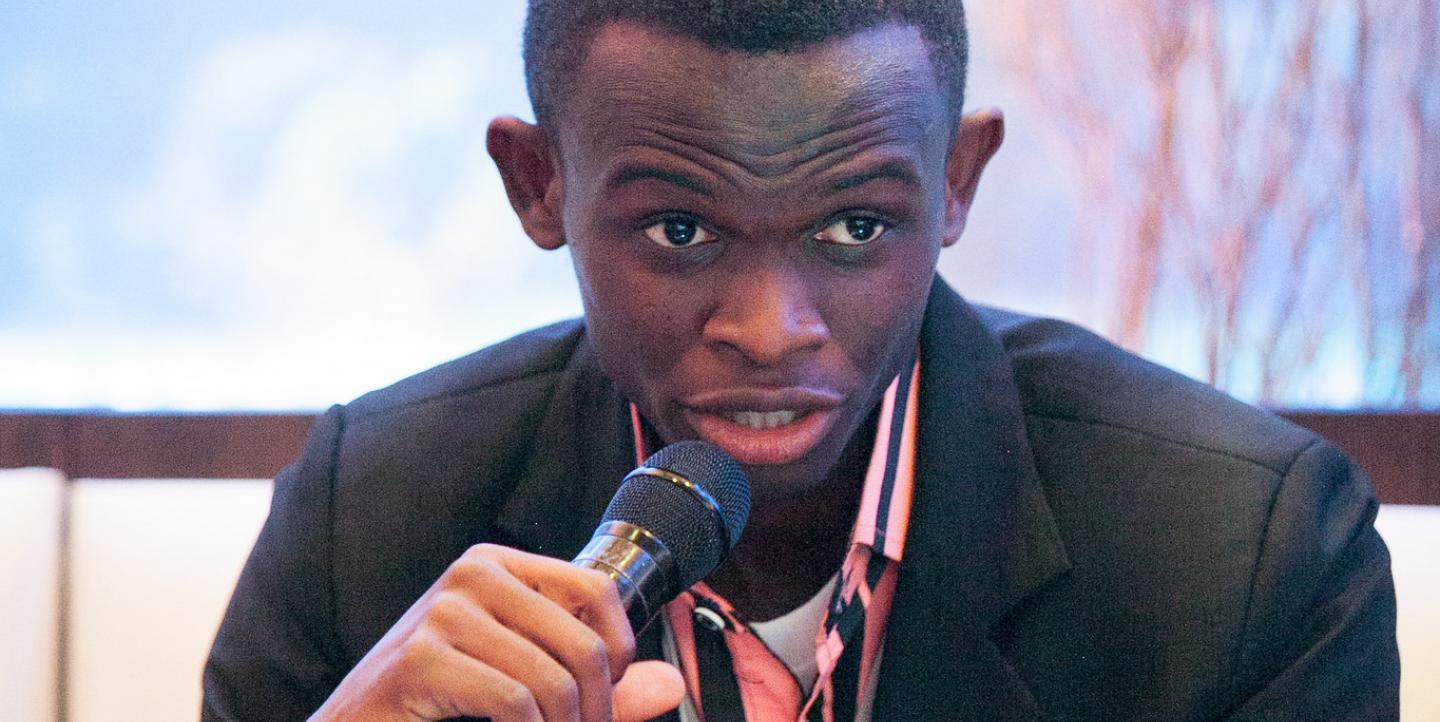For Nigerian journalist Ebenezar Wikina, the concept of frugal innovation—doing more with less—has been a guiding principle of his career as a journalist so far.
“When I started blogging in 2013, I didn’t even have a laptop,” he said. “I just had to use my not-so-smart Java phone because that was all I had. Most of the tools that worked for me back then are the tools I still use now—and these are simple tools available to everyone everywhere.”
Since then, Wikina has started his own interview column, “The Stroll,” in which he has interviewed more than 120 global leaders from 40 countries. Using Facebook Live, he has live-streamed interviews with people like Michael Møller, director general of the United Nations Office at Geneva.
When he’s not working on “The Stroll Live,” Wikina stays busy as a digital communications and research officer for the Rivers State Government Sustainable Development Goals Office in Port Harcourt, Nigeria. His writing has appeared on The Huffington Post, and he helped organize West Africa’s only TEDxYouth event in 2014.
Fresh off a leadership camp at the World Economic Forum in Geneva, Switzerland, Wikina spoke with IJNet about mobile journalism, sustainable development and more:
IJNet: You were recently active during the U.N. General Assembly. Tell us a bit about your interest in development.
Wikina: Journalists, and the media in general, have a huge role to play if the new Development Agenda or the Global Goals will be a reality by 2030. We should be active, not passive, in the development process. This is why, beyond talking about development, I also had to take proactive steps like organizing TEDx events, advocacy walks ( I organized a campaign against Examination Malpractice in Nigeria's Educational system in 2013) and even got involved with the World Economic Forum's Global Shapers Community (I am currently the curator of the Global Shapers Hub in my city). I also continue to volunteer with NGOs in my community.
You’re really good at engaging with people on social media. What tips would you give to journalists who aren’t sure how to go about this?
I believe social media has digitized or disrupted human communication as we used to know it. Most of the people I have featured on my web series are people I would not have access to if I were to approach them at a conference or a public function. Social media breaks down those walls. See someone you want to talk with? Just say hello. The worst that will happen is that the person will ignore your message. But no reasonable person will ignore four or five messages which have something important concerning them.
When everything fails, try emailing that individual. For me, emails work seven out of 10 times.
What tools/apps have you found most useful for producing your web series on a budget?
My conversation with Michael Møller was streamed via Facebook Live. I could have used Periscope as well, but I’ve seen stronger engagement on Facebook. The 13-minute conversation will live on Facebook after the live session (This is not the case with Periscope, as live streams are deleted after about 24 hours).
To convert my interview to audio, I download the video from Facebook using apps like “Video Downloader for Facebook” or web apps like fbdown.net. Next, I use an MP3 video converter to convert the video to audio.
I can edit the video file and upload it on YouTube or Vimeo. The edited audio (edited with Ocean Audio or Adobe Audition) can be uploaded on Soundcloud or any other audio streaming service.
The hardest job on earth comes with the text. Personally, I haven’t used any of these speech-to-text converters yet. For all my interviews that were produced in versions other than text; I’ve had to type out the entire interview by hand.
What advice would you give to someone just starting out in journalism?
My advice to anyone just starting out is don’t be in a hurry to get out there. Cultivate your hunger for news and information. It is only when you are informed that you can inform others.
Secondly, start small and grow fast. We all want to write on the big platforms like The New York Times or The Huffington Post, but you have to start small. The editorial and media team of Newlife Baptist Church in Port Harcourt and the publisher of Teens Planet Magazine played a huge role in my early years. The audience was small, so I could easily correct mistakes and manage the feedback, which in turn helped me grow.
Image courtesy of Ebenezar Wikina.
This interview has been condensed and edited for clarity.

